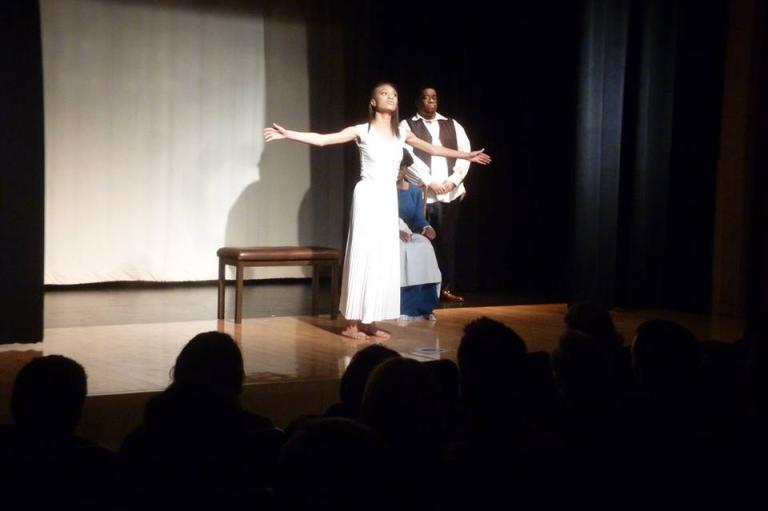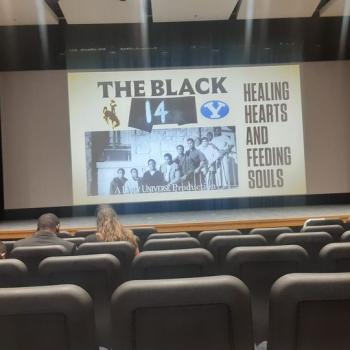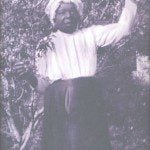“The fundamental principles of our religion are the testimony of the Apostles and Prophets, concerning Jesus Christ, that He died, was buried, and rose again the third day, and ascended into heaven; and all other things which pertain to our religion are only appendages to it.”36 (Teachings of the Prophets)
When I was in my late twenties, someone said to me, “You’re too smart to be a Mormon.” Clearly, I’m not. But the picture of Mormonism this person had in mind does not represent the kind of Mormonism I live.
I maintain my basic philosophy: that this mortal experience is like nursery school preparing us for Kindergarten. We are learning the basics–how to repent, how to forgive, how to love. Easily written, but each principle reappears throughout our lives, demanding new levels of instruction. The principle of forgiveness is infinitely layered. We can forgive someone for stealing a candy bar, provided they apologize and replace it. Maybe we can forgive them even if they continue to deny it. Can we forgive someone who humiliates us? Can we forgive someone who humiliates or harms someone we love? Can we forgive betrayal, deceit, or abuse of authority? These lessons will not be philosophical but personal, and they will go deep. The deeper our ability to understand not only the principle but the suffering which attends it, the deeper our challenges will be. We are in a world where God allows incomprehensible pain, but where he also manifests miracle after miracle.
The simplistic idea of a God who, like Santa Claus, answers requests and allows us to find lost homework is not enough to sustain us through the hardest lessons. Thus we hear the frequent lament, “A loving God would not allow this!” The lament is not about a lost item, of course, but about the tragedies endemic to this world—kidnapped Nigerian school girls, senseless accidents, intentional hurts, cancer, birth defects, dementia.
I regard Ivan’s brilliant cynicism in The Brothers Karamazov as a mature and nuanced observation that God—if there is a God (as he is debating)—apparently sanctions evil. After listing a series of horrendous, gut-wrenching, sadistic acts, Ivan says: “if all the sufferings of children have gone to replenish the sum of suffering that was needed in order to purchase the truth, then I declare in advance that no truth, not even the whole truth, is worth such a price.” He then tells his brother a story about an inquisitor who sees Christ and insists upon knowing why He didn’t accept the three temptations and thus care better for humanity by feeding them bread and comforting them with “miracle, mystery, and authority.” The inquisitor declares that with one gesture, he can summon the crowds who had worshipped the returned Savior, and they will heap the embers around him and burn him. The Lord’s answer is silence, and then a kiss on the inquisitor’s bloodless lips. “Go,” says the inquisitor. “Go and come no more. Not ever.”
Some have interpreted this kiss as acquiescence. I interpret it as a witness that even the inquisitor’s calculated usurpation of the Savior’s status—making of himself an idol for unseasoned worshippers–does not exceed the bounds of Christ’s love.
I believe in Gods and Goddesses. I do not pretend to comprehend what God-ness is, though I have seen godliness in most religions and in many people. I believe that I have Heavenly parents, but my understanding of what that means unfolds only as my own life progresses and I mature in the basics. My mortal understanding is not yet sixty years old. The narratives I learned which contextualize my understandings and invite me to learn more are from a religion which is only 184 years old. Yet I learn, not usually from the lesson manuals, but from life itself. I love the way Joseph Smith described the dynamic and eternal religious life in the King Follett sermon:
Thus you learn some of the first principles of the gospel, about which so much hath been said. When you climb a ladder, you must begin at the bottom and go on until you learn the last principle; it will be a great while before you have learned the last. It is not all to be comprehended in this world; it is a great thing to learn salvation beyond the grave.
For months, a particular scripture continued to appear whenever I opened scriptures or listened to sermons or contemplated my path: “But they that wait upon the LORD shall renew their strength; they shall mount up with wings as eagles; they shall run, and not be weary; and they shall walk, and not faint.” (Isaiah 40:31)
It came to me in many ways. My father, wheelchair bound and with a broken femur which has not fully mended, declared, “I will walk again!” I came upon the scripture the next Saturday, and knew that Dad was right—though the timing was not what he would want. We had a year of dialysis after that statement of Dad’s—the seventh of eight years of thrice weekly attachment to machines and painful episodes of cramps and fatigue. Last week, he had a chest x-ray, and re-injured his leg as he collapsed back into his wheelchair after standing for the procedure. No, he will not walk again in this life. But he will walk again. He will echo the paradox which Job proclaims: “And though worms destroy this body, yet in my flesh shall I see God.”
Joseph of the Old Testament dreamed of his brothers kneeling to him, but waited through the betrayals and imprisonment before the dream became reality—and of a nature and in a setting which he could not have supposed.
Of course, the idea that our most heartfelt petitions might not be granted in this life but will be fulfilled later sounds like the elusive “pie in the sky after I die,” making our work feel almost meaningless, grand labors for a puny expectation that someone will give us a bit of sugar eventually. That is until we re-frame our expectations. Even the petitions are weights to teach us strength, to stretch and even transform our spiritual yearnings, to train our ears beyond what seems a silent Heaven and to hear in ways we had not supposed, even to seek God in places we have not imagined.
I believe that God “allows” any choice. That is the whole premise of this life. I even believe that God “allows” leaders of any religion to be culturally influenced. So I take a nuanced view of Wilford Woodruff’s statement defending the manifesto after so many had been jailed over polygamy. “I say to Israel,” Woodruff said, “the Lord will never permit me or any other man who stands as president of this Church to lead you astray. It is not in the program”
The above statement is quoted from all sides. Because of my attention to race issues, I have heard the statement repeated in frustration by those who feel betrayed that the Church issued strong declarations about the priesthood restriction which we now know were ill-informed.
Judge tenderly. These leaders were going off of what they remembered rather than what had actually happened. They were not being deceptive; they simply did not know. It would be another twenty years after the 1949 statement claiming that the restriction had existed from Joseph Smith’s time before others would begin solid research, eventually learning that Joseph Smith had ordained black men to the priesthood, that Brigham Young had been misquoted in his pronunciation that “Any man having one drop of the seed of Cane [sic] in him Cannot hold the priesthood.” (That misquote started an unfortunate lineage search throughout the world, which David O. McKay gradually undid.)
Somehow, even though we should be aware of prophetic fallibility documented throughout the scriptures, I continue to hear the question, “If Brigham Young was a true prophet, how could he have done this?”
Such a question comes from viewing a prophetic calling as somehow superseding agency and culture. But agency is the prime directive, and culture is an inevitable context and filter for all new understanding. The onus of discernment ultimately falls on the audience. For me, the process of discernment matches another description from the King Follett sermon:
I know that when I tell you these words of eternal life that are given to me, you taste them, and I know you believe them. You say honey is sweet, and so do I. I can also taste the spirit of eternal life; I know it is good. And when I tell you of these things that were given me by inspiration of the Holy Spirit, you are bound to receive them as sweet, and I rejoice more and more.
There are things I FEEL to be in harmony with my spiritual intuition, and things I recognize as dissonant. I quietly turn from dissonance, and move as best I can towards the harmonious. I know I can learn from all, and try to refrain from accusation. I find that as I seek the harmonious and divine, my life is touched with opportunities to serve others. I am not rewarded by a position, but by an invitation to help someone.
In truth, leaders must be servants or they will not lead well. Each man or woman called to a leadership position brings distinctive talents and proclivities—as well as cultural traditions. It’s no surprise that Elder Nelson, a heart surgeon, often speaks about the heart or about laws of health; that President Uchtdorf, a former airline pilot, loves to use flight analogies; that President Monson, a bishoply man who understands his pastoral role, speaks often of service.
I have heard some say that the hierarchy “knew” the priesthood restriction was wrong and refused to correct it. That statement is patently untrue. The LDS leaders went into their callings with as much knowledge as you would have had at the time.
I remember asking my history teacher how Japan became a part of WWII. I didn’t get it. The teacher, a WWII veteran, simply assumed that the class knew what he did. When he realized that we had never been explicitly told, he gave a clear explanation. Near the same time, I asked my seminary teacher about the priesthood restriction and received an answer so tainted by prejudice that I knew in my whole soul it was wrong, and I dropped out of seminary for a time.
LDS church leaders have often (though not always) been hungry for information on the restriction, because they recognized that they did not know the history. Leaders searched it out in 1879, and then again, at President Kimball’s request, in 1978–just before the restriction was lifted. More recently, leaders eagerly worked to learn the history as the church statement of December 6, 2013 was being prepared. The statement is a good and accurate one, saying precisely what needs to be said to propel us into a hopeful future where we begin advanced lessons on unity.
How wise was President Uchtdorf’s reminder from October Conference, 2013!
There have been times when members or leaders in the Church have simply made mistakes. There may have been things said or done that were not in harmony with our values, principles, or doctrine. I suppose the Church would be perfect only if it were run by perfect beings. God is perfect, and His doc¬trine is pure. But He works through us—His imperfect children—and imperfect people make mistakes.
I am grateful for my faith, and also for my failings. I love the gospel of progress, of repentance and forgiveness. I love the dynamic nature of the Mormon religion—though our communal steps can feel painfully slow. I love the communities of service we form in our various wards and branches, and the opportunities to grow in love as we deal with each other’s imperfections, “waiting upon the Lord” and waiting upon one another–sometimes as servants, and sometimes as fellow pilgrims–trusting that our strength and our patience will be renewed, and that we will eventually “mount up with wings as eagles.”













